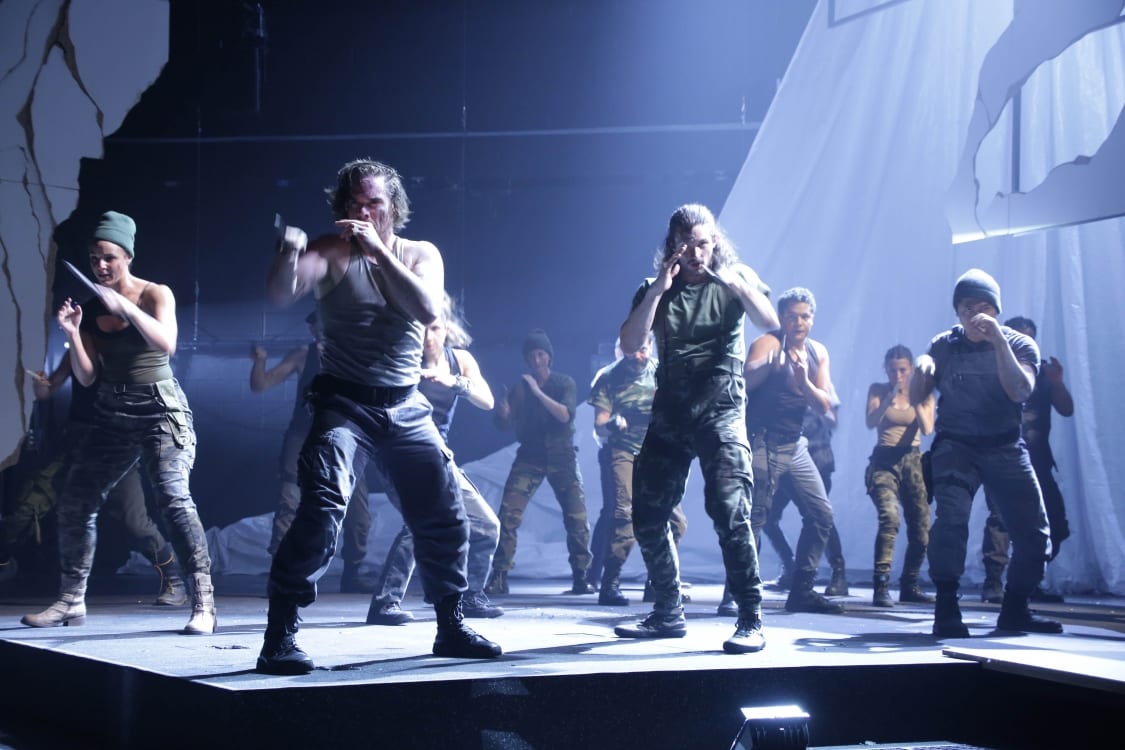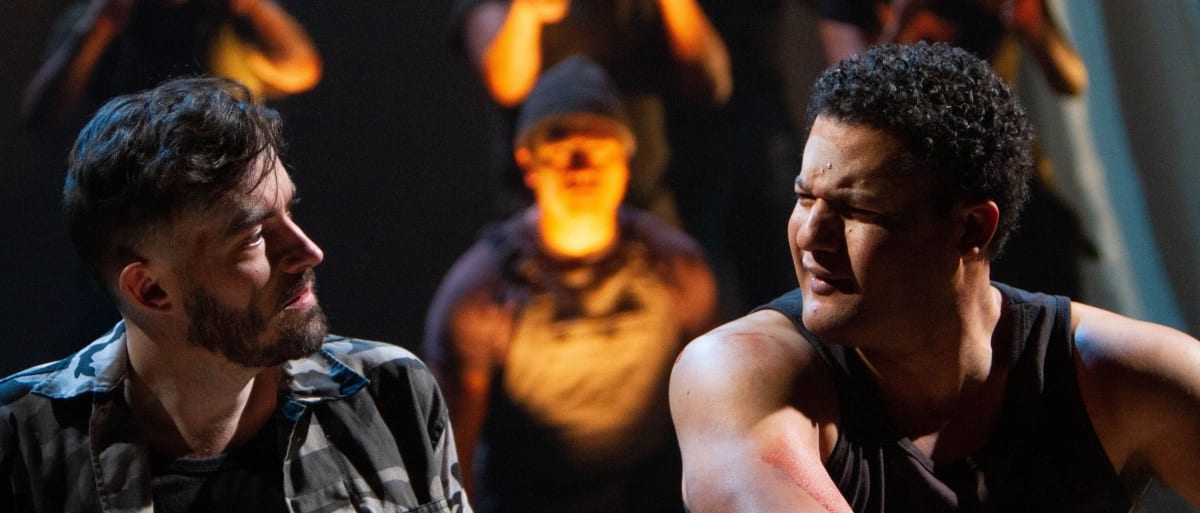The lights haven’t even dimmed before a guttural scream rips through the theater, so unexpected and primal that most of the audience actually jump in their seats. Such an explosive beginning seems to capture the spirit of Shana Cooper’s The Tragedy of Julius Caesar. This is a production that is physical, elemental – it throbs with emotion, history, and portent.
The stabbing of Julius Caesar on the Senate floor in 44 B.C. is a story that has captivated the Western world in many ways and forms. But though Shakespeare’s tragedy may be titled after Caesar himself, it is Brutus who is the true tragic hero of this play. Portrayed by Brandon J. Dirden with unquestionable gravitas and a permanent brooding look worthy of Jon Snow, we watch Brutus hurtle inevitably towards his demise for the crime of doing what he thought was noble. And what a crime it is.
Throughout the production, otherworldly forces seem to be at work, guiding the show to its fateful finale. Thunder and lightning haunt the players’ steps, and the scene changes are choreographed dances heavy with omen. The set, like a house being built up and torn down at the same time, falls apart as the action progresses. At one point, a man-sized piece of drywall even crashes to the ground. The message is blatantly clear, but no less ominous – the state of Rome is crumbling.
The mark of a skilled director of Shakespeare is what they choose to do between the lines – literally. And Shana Cooper ensures that actions speak just as loud as words. Her most striking device is the flashing of the daggers that appear in nearly every scene. They are used to show strength or to expose weakness; they are used to betray friends or to prove loyalty. In one electrifying scene, Casca grips the blade of the knife that Cassius has pressed to his breast. Later, in the most memserizing duet of the production, Brutus’s wife Portia seduces him until she can seize his dagger, slicing it into her own thigh to demonstrate her worth. The physicality of the actors, whose movements and body language are as dramatic as their conspiratorial whispering and cries of war, only increases as Rome descends into civil war.

With an all-around superb cast, Dirden as Brutus and Jordan Barbour as his adversary Mark Antony lead the ranks with emotionally charged, intimate performances. Barbour’s execution of Antony’s funeral for Caesar roused an ovation from the otherwise silently rapt audience. Also worth a mention are Tiffany Rachelle Stewart as Calpurnia and Merritt Janson as Portia. With much smaller roles than their male counterparts, Cooper maximizes the space these two women take up on stage – if not with words, then with their indignation, their mourning, their agitation. Sometimes their mere presence speaks volumes. Calpurnia’s obvious foreboding practically screams over the words of the men who ignore her; later, her actual screams to no one send chills through the theater.
Every detail of this production seems to have been as carefully thought out and put together as the original text itself, from the eerie Greek Chorus-esque masks of the rioting plebeians to the stylized fight choreography that vaguely brings a Beyoncé video to mind (but which does not fail to deliver a cathartic gut-punch). In short, Shana Cooper’s Julius Caesar is a powerful statement on what is still so relevant about this play – power, politics, friendships, nobility – and it is a work of art.

